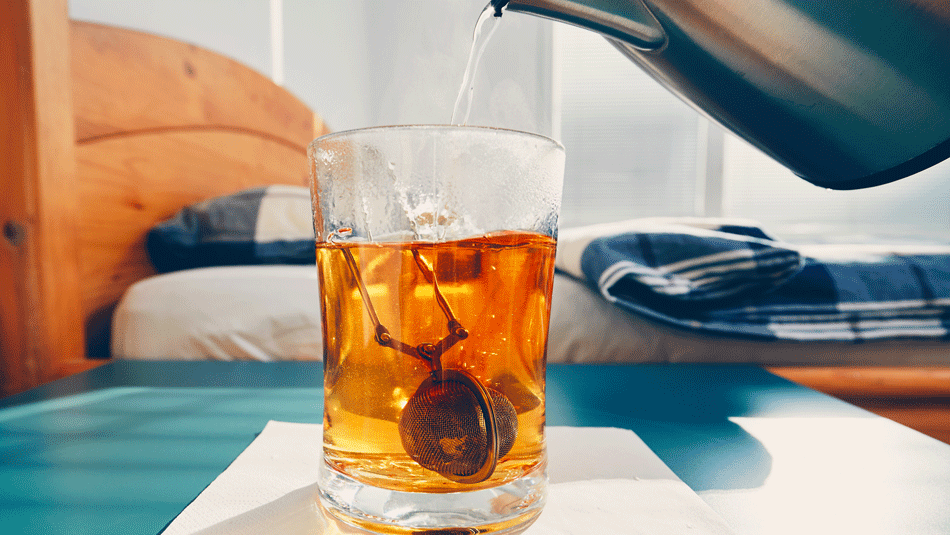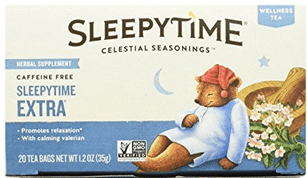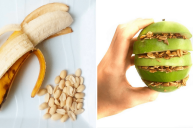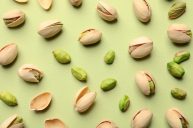As an insomniac, I get it. Goodnights of natural sleep are few and far between. You take any amount of shut-eye you can get, whether its restful sleep or not. Unfortunately, for those of us who can't fall asleep or stay asleep with a disjointed sleep pattern, the effects turn into a real nightmare. Sleep deprivation not only leaves you feeling out of sorts the next day, but it can lead to a host of unhealthy side effects. The last thing you need to worry about when you can't sleep is how your lack of sleep is affecting your health. That's where natural sleep aids come in.
For those that are looking to get a good night's rest or ease their insomnia the natural way without the use of sleep medications, there are certain plants and foods that can help out. As someone who has tried pretty much anything and everything other than taking sleeping pills, I can tell you that these natural sleep remedies do make a difference.
Whether you're looking to improve your sleep quality or need a natural remedy to cure your insomnia for a more regular sleep schedule, these 12 foods and plants can help you get the zzzzzzzz's you need. Ditch the over-the-counter meds and perscription medications and let nature take care of you.
1. Almonds
Low magnesium levels can result in poor sleep and a disjointed sleep cycle. The mineral magnesium is necessary for more than 300 chemical reactions in the body, and one of those is sleep. If you are having trouble staying asleep or have difficulty falling asleep, it may actually be due to a magnesium deficiency.
To get a boost of magnesium, eat a handful of almonds before you go to bed. The magnesium will relax your muscles and tell the brain it's time for sleep. They also contain protein which helps make tryptophan. If you're looking for a bedtime snack that's easy to have on hand as a natural sleeping aid, then opt for almonds.
2. Bananas
You may be familiar with the sleep hormone melatonin. Every night when we go to bed, this hormone, triggered by darkness, tells the brain it's sleepy time. Unfortunately, not everyone's body produces enough of the common sleep aid to get to sleep and this can cause insomnia. Bananas, however, can give your body a boost of melatonin that you might be lacking.
Bananas are rich in vitamin B6, just what your body needs to make melatonin. Next time you wake up in the middle of the night, opt for a banana. I also recommend combining it with a magnesium supplement, commonly found in capsule form.
The last time I ate a banana and took magnesium when I woke up in the middle of the night, I found myself snoozing after fives minutes. And trust me, getting back to sleep for me is not easy.
3. Cheese & Crackers
Any excuse to indulge in a plate of cheese and crackers is a good one. So when you hear cheese and crackers is good for sleep, you can stop feeling guilty about your midnight snack. Like warm milk, it's a natural home remedy that kicks sleep into gear. The calcium and tryptophan in dairy both help your body make melatonin.
Combining it with carbohydrate-rich foods like crackers increases the effectiveness. The carbs from the crackers help create serotonin - which is a chemical that helps with sleep. Together, the two are a tasty double whammy in combating sleep disorders and sleeplessness.
4. Cherry Juice
If you're concerned that eating fattening foods may prohibit weight loss, try drinking a glass of cherry juice. Cherries naturally boost your melatonin levels thanks to the tryptophan they contain.
One study reported by the Journal of Medicinal Food showed that tart cherry juice in particular can help older adults who have trouble sleeping and staying in a deep sleep. Over a two-week period, adults suffering from insomnia who were given the tart cherry juice showed improved sleep over those that received a placebo.
5. Walnuts
Anyone who has eaten a Thanksgiving turkey dinner has heard about the wonders of tryptophan. It sends a message to the brain that the body is getting tired and it's time for bed. While keeping a roasted turkey around for sleep isn't likely, keeping walnuts around is.
Walnuts are an excellent source of tryptophan. By consuming them, the body is able to use the amino acid to create serotonin and melatonin. Before you hit the hay, try eating a handful of walnuts to increase your tryptophan uptake and decrease your mind's state of alertness.
6. Fish
Vitamin B6 is essential in getting sleep - and fish is full of it! Consuming vitamin B6 helps the body produce melatonin. Fishes like salmon and tuna are your best choices when it comes to getting vitamin B6. As a bonus, fish also contains protein which helps promote sleep.
If you want an additional boost, mix carbs and protein to enjoy a delicious tuna sandwich.
7. Valerian
Ahh, valerian. Relaxing, calming, and downright amazing, if you have trouble sleeping, then get some valerian root. Valerian inhibits the GABA - gamma aminobutryic acid - neurotransmitters that are responsible for sleep. It's this amino acid that dampens nerve activity, causing the brain to become calm and relaxed. Those with insomnia often have reduced GABA levels.
You can buy the root whole to make a tea or opt for the liquid herbal drops. Everyone has different levels of restless sleep, and the droplets are nice because you can take less than the recommended amount if you only need a little "night cap" shall we say.
I will forewarn you though, it's not the most pleasant of tastes or smells. In comparison, it smells like a rotted potato. Once you get used to it however, the smell becomes less noticeable. And in the end, the sedative properties are worth it.
8. Herbal Tea
Herbal teas like chamomile and valerian act as a mild sedative. They relax the body and make you feel like your eyes are too heavy to keep open. Of all the herbal teas, I recommend the Celestial Extra Sleepy Time Tea. Not to throw a product placement out there, but this stuff works. It contains pretty much everything that contributes to sleep - chamomile, tilia estrella, and valerian. The combination in this is like a slumber guarantee.
Do not, however, consume more than two cups, otherwise it may work a little too well.
9. Aloe Vera
The aloe vera plant may be best known for soothing a bad sunburn, but did you also know that it can help you sleep? Aloe vera makes NASA's list as one of the top plants that improve air quality. At night, aloe vera exhales oxygen, increasing the amount of oxygen in the room. This act of emitting oxygen means you'll get better sleep.
As an added bonus, aloe vera is incredibly low maintenance. So when you go to bed at night you won't be kept up worrying about if you watered your plant or not.
10. Jasmine
The sweet scent of jasmine is more than welcome when it comes to getting a good night's rest. A study conducted by Dr. Ryan Raudenbush, the assistant professor of psychology at Wheeling Jesuit University, found that the odor of jasmine may lead to better sleep.
The study monitored 20 test subjects over the course of three nights. What they found was that the odor of jasmine lead to greater quality sleep and less movement. By increasing relaxation and reducing anxiety, having a jasmine plant by the bedside can help with your sleep.
11. Lavender
If you find your heart racing at night, try calming it down with a lavender plant. Lavender can help decrease your heart rate and lower blood pressure. You can also try it as an essential oil.
The essential oils of lavender have a calm and soothing effect. When going to bed, rub some behind your ears and dab a bit on your pillow. It may not cure insomnia, but it will offer relaxation for those looking to get more quality sleep.
12. Snake Plant
Along with aloe vera, Snake Plant - Mother In Law's Tongue - also made NASA's list of top air improving plants. It turns carbon dioxide into oxygen at night, allowing you to get better quality sleep. Snake plants work round the clock all day to purify your air, so not only will it help you sleep at night, but it also lets you benefit from purer air quality.
Beyond food and plants, regular exercise and turning off electronics can make a huge difference in getting some rest. Exercise wears out the body and is one of the best natural remedies. As for electronics, the blue light emitted can trigger the brain to stay awake. Try developing a nightly bedtime routine that promotes relaxation and allows you to wind down. The brain will begin to associate the routine with sleep and help you get the rest you need.






